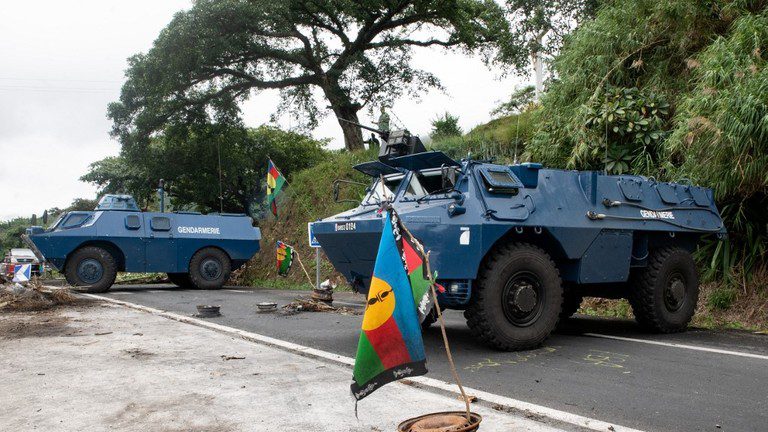World
France Launches ‘Major Operation’ in Unrest-Stricken New Caledonia

France has initiated a significant operation in New Caledonia, a Pacific Ocean territory, with the aim of reclaiming a crucial road that connects the airport to the regional capital, Noumea. The unrest and clashes in this archipelago, located east of Australia, were triggered by a controversial election reform proposed by Paris.
To regain control of the 60-kilometer-long Route Territoriale 1 and remove the roadblocks set up by protesters, more than 600 gendarmes, including a hundred officers from Paris’ elite counterterrorism unit, were deployed, as confirmed by French authorities.
Interior Minister Gerald Darmain expressed satisfaction with the operation’s progress, reporting the dismantling of 76 barricades and the arrest of over 200 individuals. However, the highway remains closed due to ongoing debris removal, which is expected to take several days.
The riots, which began on May 13, have resulted in the loss of six lives thus far. Indigenous Kanak activists are protesting against a constitutional reform that would grant voting rights in local elections to individuals who arrived in New Caledonia after 1998. These activists fear that this change would diminish the influence of the indigenous population in favor of French settlers.
The initially peaceful protests quickly escalated into violence and looting, drawing comparisons to the pro-independence armed uprising of the 1980s by local officials. In a televised address, the French high commissioner in New Caledonia, Louis Le Franc, emphasized the restoration of “Republican order” at any cost and warned the rioters of severe consequences if they refuse to back down.
New Caledonia, colonized in the 19th century, has a population of 270,000 people, with the Kanaks constituting approximately 40% of the population. Despite being predominantly under French control, the archipelago was granted increased autonomy in 1998, limiting voting rights to residents prior to that year.
The presidents of La Reunion, Guadeloupe, Martinique, and French Guiana, all French overseas territories, collectively appealed to the French government to abandon the reform, emphasizing that a political solution is necessary to curb escalating violence and prevent a potential civil conflict.
Despite rejecting independence from France in referendums conducted in 2018, 2020, and 2021, New Caledonia faced challenges during the last vote, including low turnout and calls for a boycott from Kanak activists who sought a postponement due to the COVID-19 pandemic.
